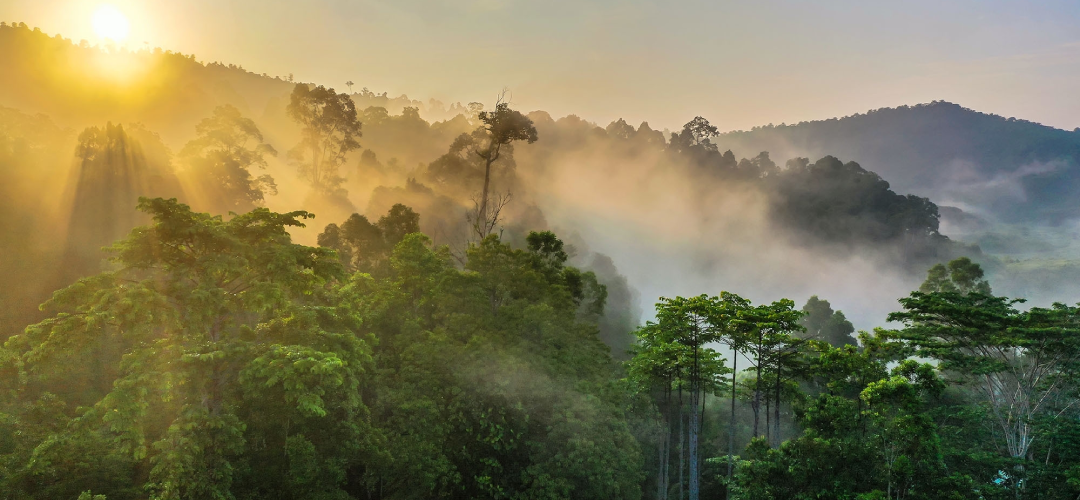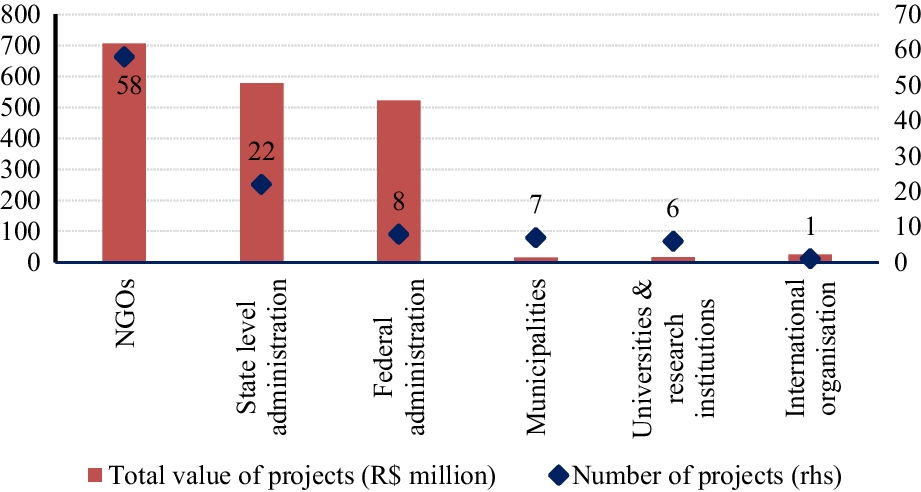Sustainable Development in Amazon
April 13, 2024 | Expert Insights

The world should heave a collective sigh of relief as nations that own the Amazon Basin come together with a long-term plan to protect it. More importantly, they are charting a road map that will allow its exploitation for their economic growth sustainably.
Last year in August, eight nations (Bolivia, Brazil, Colombia, Ecuador, Guyana, Peru, Suriname and Venezuela) came together to protect the rainforest during a Summit hosted by Brazil, pledging to launch and strengthen the Green Alliance to protect the Amazon Basin.
The forest terrains are under severe strain due to logging, forest degradation, extension of native species, and extreme weather brought on by climate change. Around 4.1 million hectares of tree cover were lost due to deforestation in 2022. Sustainable development is being preached in the region with little to no incentive to take concrete measures. However, the coalition to protect the Amazon Basin might be the beginning of substantiated ecological intervention.
Background
The Amazon Cooperation Treaty Organization (ACTO) has grown to play a vital role in achieving the Sustainable Development Goals in the Amazon region. The organisation has successfully developed objectives, set priorities, distributed funds and offered scientific strategic directions for immediate and future actions in the Amazon region. Renewing the Amazon Corporation Treaty will ensure easy legislation on environmental progression. The past 20 years have witnessed public resources being channelled into the Amazon basin, and quantitative and qualitative progress has yet to be seen. All eight nations have relaxed their approach to achieving all indicators.
Keeping five dimensions in mind, sustainable development emphasises the progression of people, planet, prosperity, peace, and partnership. To maintain ecological integrity and promote economic prosperity, nation-states have begun to consider these parameters and dimensions within the Amazon Basin's ecological limits. However, with national interests trumping environmental safety and security, the Amazon basin's regulation and global climate stabilisation seem to be compromised in the economic bargain. The Amazon basin is crucial for almost 300 million people in South America, around 47 million people from the Amazon and 10 per cent of all known species on Planet Earth.
The Basin's capacity to recover and rehabilitate is reducing at an alarming rate. With large-scale soil degradation, forest conversions, and heightened climate change, the region might slip into an ecological tipping point or a point of no return. The consequences will affect Latin America's health and food security and the global climate. Ecological instability will have dire and drastic consequences for the nations in the region.

Analysis
The Amazonian countries have reflected a moderate to significant lag in achieving ecological sustainability in the Basin compared to the global averages. The COVID-19 pandemic made the situation worse, having the second-highest cumulative death rate globally. The post-COVID era is seeing slow changes, but certainly, more is needed. While the region is plagued with poverty, inequality, violence and crime, ecological development might not top the list. Challenges to the region have increased after the pandemic despite efforts to improve the green policy and legislation. Ecological recovery is essential to rehabilitate structural and environmental damage to the flora and fauna of the region. This will further translate to regional and global security.
Several indicators assist in indigenous environmental support for leaders and policymakers: well-defined early warning systems, developing public policy instruments for alignment and implementation, a green strategy for monitoring and evaluation, multi-level governance, adequate financing, public-private partnerships, policy coherence, and, most importantly, local indigenous community knowledge.
The alliance of nations has important work to coordinate and collaborate in the basin region. Developing an efficient policy to combat forest loss in the Basin will ensure that commercial logging, road construction, and other factors contributing to damage and deforestation of the forest are heavily regulated. With multiple nations involved, different strategies could be put in place to monitor the region's deforestation rates. More efforts to strengthen the region's ecological balance could be adopted. The Brazilian government has amplified efforts to support the communities along the Amazon River, especially regions where El Nino and global warming have resulted in record drought.
Multilateral environmental cooperation, although stumbling, might be a solution to combat the collective challenge of climate change and environmental degradation. With environmental issues still videos as secondary foreign policy, best dealt with by environmental ministries, the Amazon basin and other biomes have suffered and will continue to decay. Priority given to trade, finance, defence, international free trade, alliance politics and geopolitical competition will have rendered environmental legislation redundant.
A feasible, industry-specific agreement supervised by a weak implementing agency unable to ensure adherence to obligations reflects the current nature of multilateral environmental governance. The Paris Agreement and the COPs fall under these categories. With the Earth burning in several parts, strong, substantial developmental goals have seldom been reached. A disinterested collective of nations attempting to propose commitments motivated by their immediate domestic politics and economic concerns will have large-scale ramifications for the ecological health of the Amazon basin and the larger planet's destiny.
With the Anthropocene here, more is required. Foreign Green policy needs a paradigm shift that will be more collaborative on the global common environmental dangers of climate change and disappearing biodiversity. Green policies reflecting non-conventional approaches to international security, world order, and foreign policy are progress toward sustainable ecological development. Governments must declare the biosphere's survival a fundamental national interest to prioritise and allocate resources, including funding. Incentives and regulations could be put in place. Encourage the creation of an Amazonian economy based on its ecological and cultural riches, which improves the well-being of the local populace by providing resources, legislation, and tax breaks. Establish and maintain easily accessible public monitoring systems, complete with alarms and updates, to track deforestation and environmental deterioration. Adopt international rules and procedures that guarantee collaboration, integrated information management, traceability, and cooperative operations to prevent, regulate, control, alert, respond to, and remedy environmental crimes and other illicit activities.
Assessment
- Despite having policies that reflect sustainable pathways, nations are more inclined to implement unsustainable economic activities in the Basin, which leads to environmental degradation, labour informality, poverty, and violence. This has to end, and the ACTO inspires hope in this direction.
- The pillars of collaboration between the Amazonian nations need to be strengthened for future ecological success. Human activity has resulted in decaying ecological spaces in the Amazon basin. However, a coalition of regional nations with similar intents might restore the balance.
- A paradigm shift towards ecological regeneration in the Amazon basin, with more emphasis on increasing regional ecological security and special emphasis on creative innovations and global governance, is paramount.








Comments